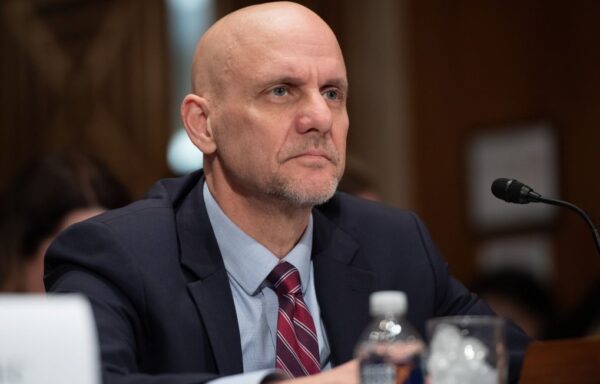
FDA Commissioner Stephen Hahn testifies March 3 about the COVID-19 coronavirus outbreak before the Senate Committee on Health, Education, Labor and Pensions
Some drug and device companies could run into problems as they seek Food and Drug Administration approval for their products after the agency moved to suspend inspections of foreign manufacturing plants through next month in an effort to prevent the spread of the novel coronavirus.
In a statement Tuesday, FDA Commissioner Stephen Hahn wrote that effective immediately, the agency would postpone most foreign inspections though April, though inspections deemed “mission critical” would be decided on a case-by-case basis.
The agency thus joins the list of companies and organizations enacting contingency plans amid the rapid spread of SARS-CoV-2, the virus that causes Covid-19. Already, numerous conferences have been canceled or postponed, while several companies have canceled business-related travel and told employees to work from home if possible. The World Health Organization officially declared the outbreak a pandemic Wednesday, with more than 120,000 people infected, including more than 1,000 in the U.S.
“We are aware of how this action may impact other FDA responsibilities, including product application reviews,” Hahn wrote. “We will be vigilant and monitor the situation very closely and will try to mitigate potential impacts from this outbreak in lockstep with the whole of the federal government.”
Given that its staff cannot travel abroad to inspect manufacturing facilities, Hahn wrote that the agency would instead use measures like sharing information with foreign governments, reviewing companies’ compliance histories and record requests in advance or instead of on-site inspections. The agency had already implemented these measures instead of sending staffers to China to inspect manufacturing sites earlier in the outbreak.
But because on-site inspections are an important part of the agency’s product application review process, its inability to conduct them risks throwing off manufacturers’ approval and commercialization plans, especially those that have applications under review or are preparing to file.
“If you have an application pending right now, this is definitely on your mind,” said Bethany Hills, a partner in law firm Morrison & Foerster’s life sciences practice, in a phone interview. “If you don’t have an application pending, strategically you may be thinking about whether or not to hold it because you may create some uncertainty.”
That could become especially problematic if the postponement is extended beyond April and into May or June, both for companies’ commercial plans as well as for the FDA itself, Hills said. “These are timelines that become strictly adhered to for commercialization and rollouts,” she said.
Chad Landmon, a partner at the law firm Axinn, Veltrop & Harkrider who chairs its intellectual property and FDA practice groups, anticipates that postponed inspections that delay application reviews will affect makers of generic and branded drugs. But the effect may fall disproportionately on generics companies, especially those that source active pharmaceutical ingredients or finished products from overseas.
“Many more generic companies themselves are foreign companies that do all their manufacturing overseas, or a larger percentage of active pharmaceutical ingredients come from overseas, but finished dosage forms too,” Landmon said in a phone interview.
For branded drugmakers, those that manufacture small-molecule products as well as biologics are also likely to be affected.
Other agency moves to mitigate the spread of SARS-CoV-2 already threaten to delay branded drugmakers’ timelines.
The agency said Wednesday that it would cancel or postpone all “non-essential meetings” through the end of April, including the Blood Products Advisory Committee meeting scheduled for April 2-3. In a note to investors, Baird analyst Brian Skorney wrote that this would presumably include the April 22 advisory committee meeting to discuss Intercept Pharmaceuticals’ obeticholic acid as a treatment for nonalcoholic steatohepatitis, which has potential to become the first FDA-approved drug for NASH. While a virtual meeting is a possibility, the need for the agency to reallocate resources to fight the pandemic, and a consequent delay in the drug’s approval, remains a very real possibility, Skorney wrote. On the flipside, another possibility is that the meeting could be canceled, which would leave open the possibility of the Intercept drug’s approval by the June 26 target date, he added.
Disruptions in generic drug approvals could additionally have political fallout, given the bipartisan interest in speeding up generic drug approvals as a way to bring down drug prices, Landmon added.
Record requests could also pose some problems. The FDA has tended to do on-site inspections and hasn’t done pure desk audits for a long time, Hills noted, and the agency’s pivot may leave companies unprepared and needing to make sure their documentation is thorough.
“It will be challenging for companies to know how to respond,” Hills said. “And they should be working with either very competent regulatory consultants or experienced lawyers to make sure they’re adequately sending in all the right documentation.”
Photo: SAUL LOEB, AFP, via Getty Images










